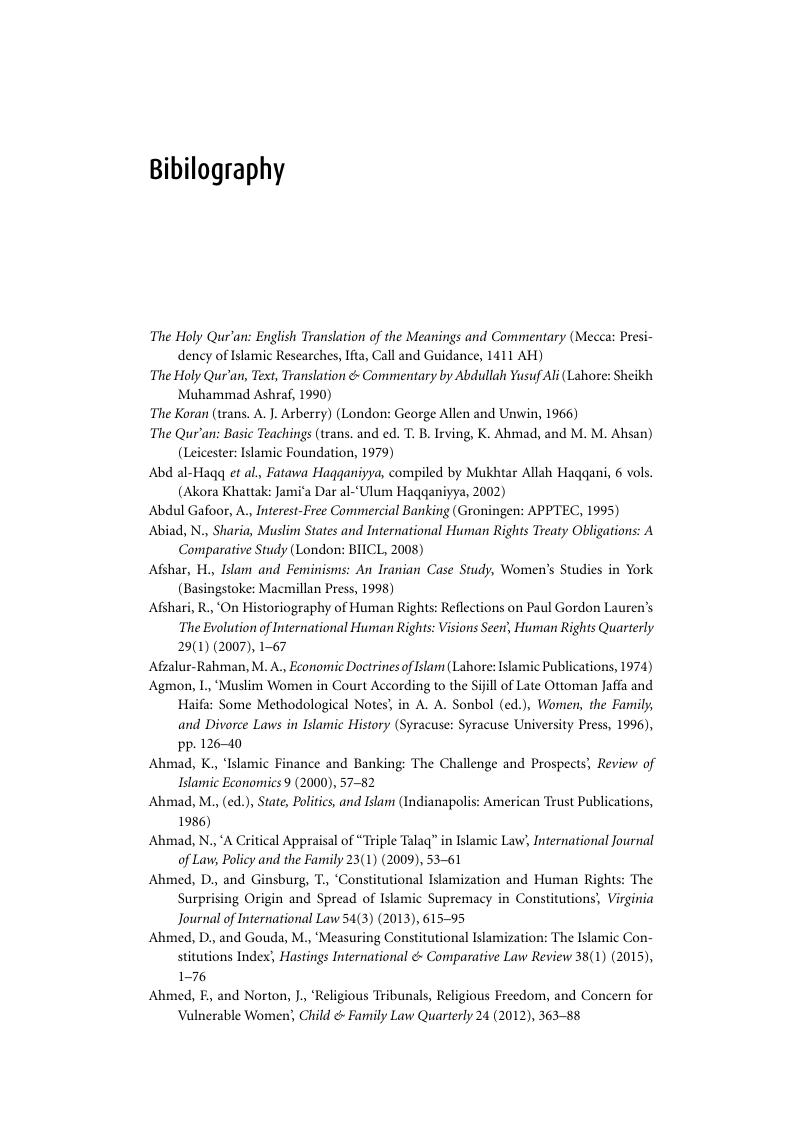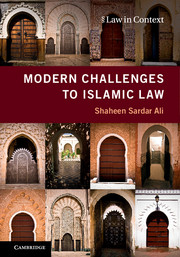Book contents
- Frontmatter
- Dedication
- Contents
- Acknowledgements
- Glossary
- Table of Cases
- Table of Legislation
- Introduction
- 1 Sharia: The Flowing Stream
- 2 An Elephant in the Room or a Needle in a Haystack? Searching for ‘Islamic’ Constitutionalism(s)
- 3 Contextualizing Family Law Reform and Plural Legalities in Post-colonial Pakistan
- 4 In Search of Legitimacy: The Dilemma of Islamic Finance
- 5 Muslim Women's Contributions to Drafting CEDAW: An Untold Narrative
- 6 CEDAW? What's That? ‘Domesticating’ ‘International’ Women's Human Rights in Muslim Jurisdictions: Reflections on Pakistan's Engagement with CEDAW
- 7 ‘Between the Devil and the Deep Blue Sea’: Sharia Councils and Muslim Women's Rights in the British Muslim Diaspora
- 8 Internet Fatawa: Challenging Tradition and Modernity in Women and Gender Issues
- Conclusion
- Bibliography
- Index
- References
Bibliography
Published online by Cambridge University Press: 05 September 2016
- Frontmatter
- Dedication
- Contents
- Acknowledgements
- Glossary
- Table of Cases
- Table of Legislation
- Introduction
- 1 Sharia: The Flowing Stream
- 2 An Elephant in the Room or a Needle in a Haystack? Searching for ‘Islamic’ Constitutionalism(s)
- 3 Contextualizing Family Law Reform and Plural Legalities in Post-colonial Pakistan
- 4 In Search of Legitimacy: The Dilemma of Islamic Finance
- 5 Muslim Women's Contributions to Drafting CEDAW: An Untold Narrative
- 6 CEDAW? What's That? ‘Domesticating’ ‘International’ Women's Human Rights in Muslim Jurisdictions: Reflections on Pakistan's Engagement with CEDAW
- 7 ‘Between the Devil and the Deep Blue Sea’: Sharia Councils and Muslim Women's Rights in the British Muslim Diaspora
- 8 Internet Fatawa: Challenging Tradition and Modernity in Women and Gender Issues
- Conclusion
- Bibliography
- Index
- References
Summary

- Type
- Chapter
- Information
- Modern Challenges to Islamic Law , pp. 271 - 292Publisher: Cambridge University PressPrint publication year: 2016



